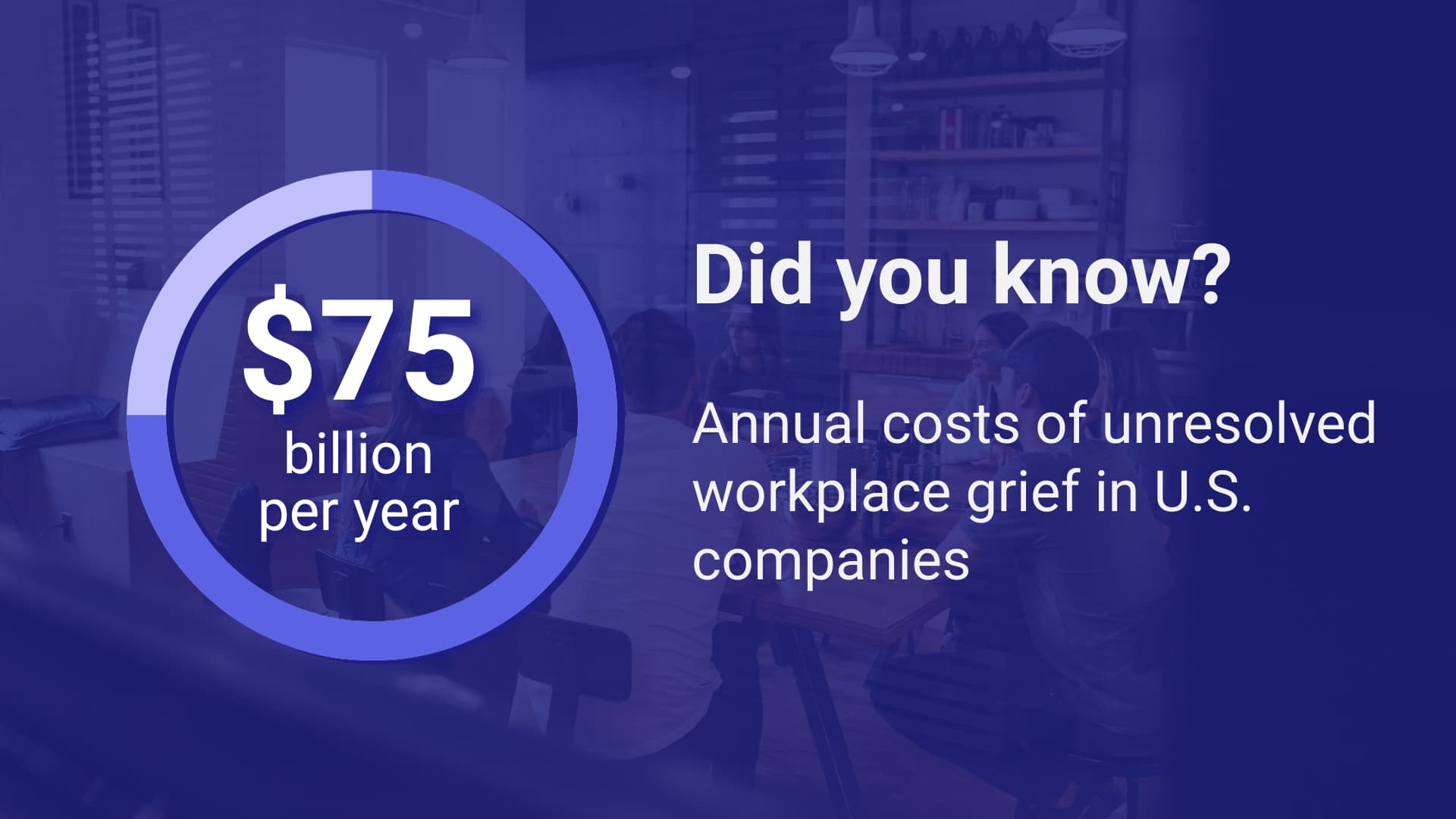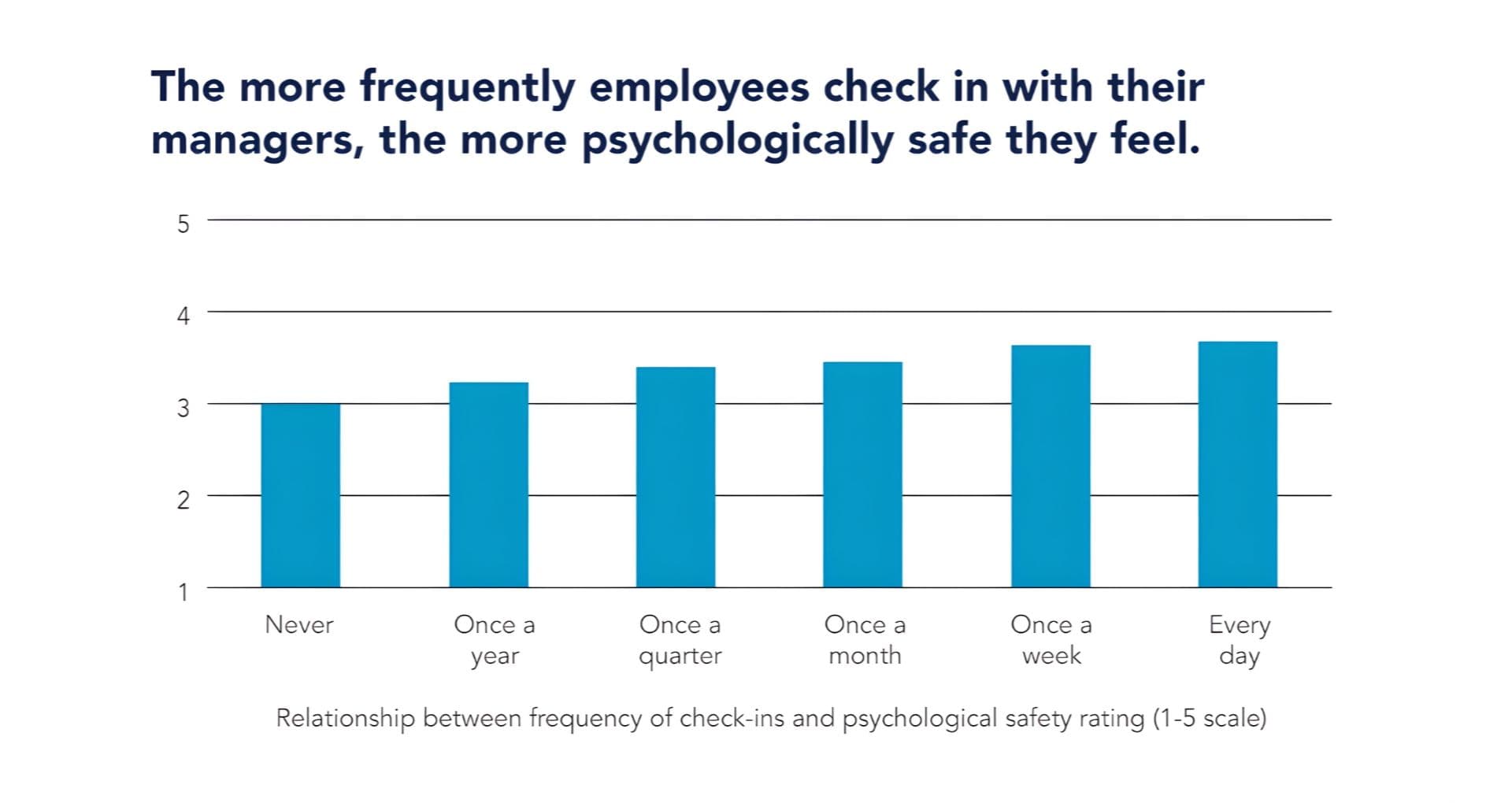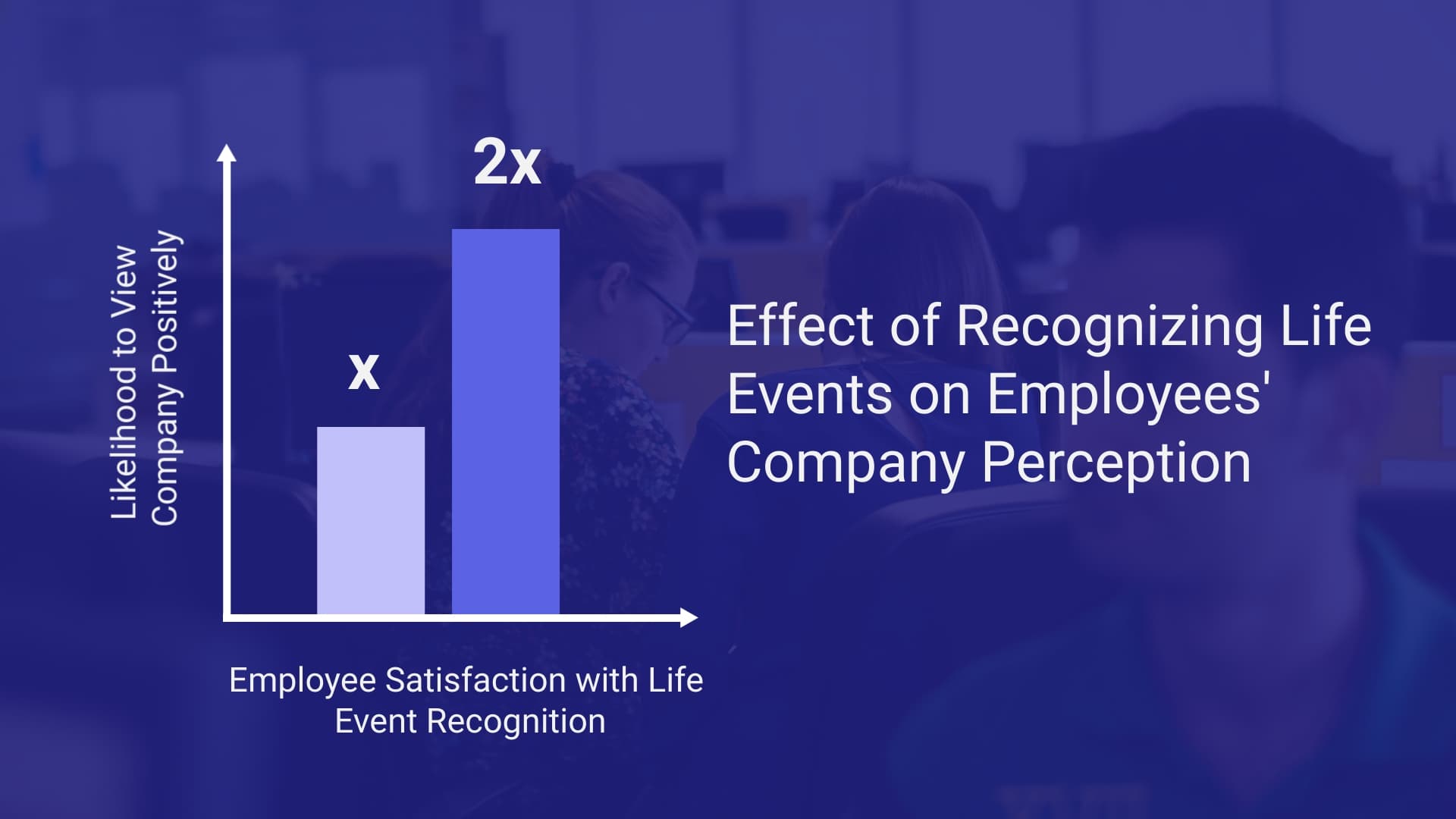Grief in the Workplace: Practical Ways to Support Your Team

Big life events like growing a family, buying a house, and getting married are easy and exciting topics to talk about in the workplace. On the other end of the spectrum, there are challenging events that are difficult to discuss but no less important. Infertility, divorce, loss of a loved one, diagnoses, and layoffs can cause isolating grief that leaves a significant negative impact on an employee's well-being.
This can extend beyond the personal and affect the company’s bottom line. One study estimatesOpens in a new tab that unresolved grief in the workplace can cost U.S. companies 75 billion dollars per year. We already know that what's good for your employees is good for your business — supporting employees through challenging life events is just another example.
For more information on how a culture of recognition can amplify the wellbeing of your employees, check out this Workhuman-Gallup report.
There are steps every employer can take to proactively care for grieving employees. Let’s explore the practical ways organizations can create a more supportive workplace environment.

Offer wellness resources
Beyond time off for illness and vacation, provide paid mental health days and label them as such. There is a stigma when someone explains why they are using their sick time when they are not in bed with the flu or running a fever. But their need for time off is just as valid, and offering time off specifically focused on mental health makes it easier for people to use them and recover.
Because the Family and Medical Leave Act (FMLA) does not extend to cover bereavement, providing paid mental health days gives employees peace of mind that they won’t be taking a financial hit to recover.
In times of high stress and grief, employees who have struggled with addiction could benefit from resources like access to support groups, addiction specialists, short-term counseling, and referrals to specialized treatment facilities to prevent relapses.
Addiction is still highly stigmatized in the workplaceOpens in a new tab; offering employees recovery and substance abuse resources normalizes that many people fall into unhealthy coping strategies as a response to change or difficulties.
Establish flexible policies
Employers are not required by law to offer paid bereavement leave. They usually determine how much time offOpens in a new tab is given depending on the relation of the person lost, but it’s impossible and inequitable to measure who deserves time to recover based on familial hierarchies. Reiterating what we discussed above, grief is processed differently by each employee, and each employee deserves fair access to rest.
Rigid bereavement policies are barriers to entry, especially when someone isn’t grieving someone or something that falls under their organization’s policy. Asking for approval to take time off can be stressful and invasive. Make it easy for employees to get what they need to grieve comfortably without having to disclose intimate and sensitive parts of their lives. In practice, organizations can:
Remove requirements and administrative burdens like providing death certificates or doctor’s notes that prove a traumatic event has occurred.
- If an employee is taking time off, choose a date to discuss their potential return date and only contact the employee about work-related issues on the agreed-upon date. Allow employees to work adjusted hours remotely or on a reduced schedule without obtaining formal approval.
- Keep the details of a person’s situation private. Whether the grieving person is speaking with their manager or HR, don’t share with others what an employee is going through. Instead, ask the employee if and how they’d like to tell other members of the team.
Prepare people leaders
Managers are usually who a person will turn to when they’re experiencing a major stressor or grief. As a result, a burden and expectation are placed on people leaders to be equipped to deal with and offer adequate support.
It is not easy to be vulnerable when processing grief or stress. Workhuman® research found that more than half (54%) of workers stated they feel comfortable speaking to their managers about stress – but more than one-third (34.7%) said they did not. Weekly check-ins between managers and reports can help build rapport and psychological safety that can strengthen a relationship in good and bad times.

Organizations can step up by providing training for these events and conversations to handle them sensitively and sympathetically. Ensure that your people leaders are aware of your company’s bereavement policies and local organizations or online resources that could be of assistance like therapists or grief groups.
Show up as a community
“Let me know how I can help” is society’s go-to response to grief or struggle. While said with the best intentions, this phrase puts the burden on the grieving. Instead of asking what can be useful to someone who is overloaded and might not know what to ask for, just act. Here are ways your teams can strengthen bonds and show commitment during tough times:
- Sending flowers is the default choice during tough times, but consider sending something more thoughtful or practical. Food, credit for laundry or cleaning services, or taking a project off someone’s plate without them asking can provide relief they didn’t know they were looking for.
- Find ways to show your colleagues that you acknowledge what they’re going through, as this can be incredibly validating to someone who is struggling. When someone is dealing with a separation or break-up, it might help to spend time with them virtually or in person. Have lunch or coffee together, let the person share their feelings if they feel up to it, and truly listen to how they are doing.
- Showing up physically when you or your team are able can make a significant impact. A team visit to a hospital or memorial service is a great way to offer the uplifting support of a community.

Invest in your teams
Logging off physically and mentally can feel next to impossible when you know that your team is relying on you. If Karina is the only one who knows how to process payroll, she will hesitate to take time off even when she really needs it. Everyone deserves to believe that their team can perform and continue for a time without them.
All to say, the pressure to perform or just show you’re “ok” persists in these times, and as an employer, your responsibility and your best course of action is to give space to your people to heal. This looks like staffing your teams before a crisis hits.
Knowing someone can’t step away will not only cause resentment to build towards their organization, which can lead to burnout, but it also doesn’t allow them the time and space they need to recover.
Wrapping up
Not every life event your employees will go through will be positive and easy to talk about. Organizations can prepare for these tough moments by setting up flexible policies and building strong, resilient teams.
Remember: every employee will process their grief differently. Give employees the option to show up as they want to as they heal. Practice empathy, generosity, and flexibility to support employees through the challenging but universal experience of grief.
About the author
Alicyn Zall
Alicyn Zall is a writer dedicated to creating a more equitable and fulfilling workplace. With a focus on actionable, data-driven insights, her work empowers individuals and organizations to foster positive change. In addition to her contribution at Workhuman, Alicyn has served as an editor at Harvard Business Review where she developed books and articles about mental health and the future of work.